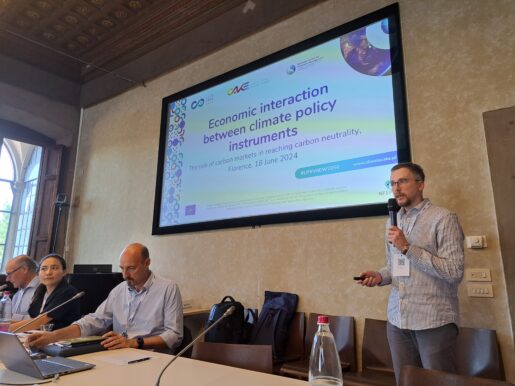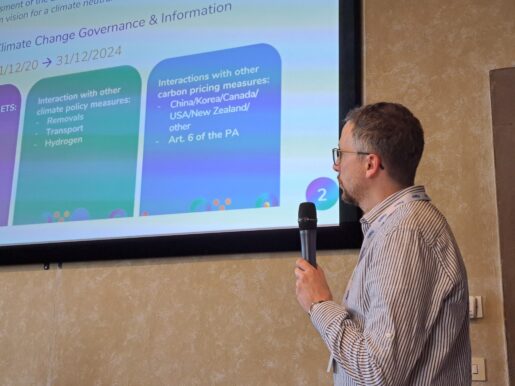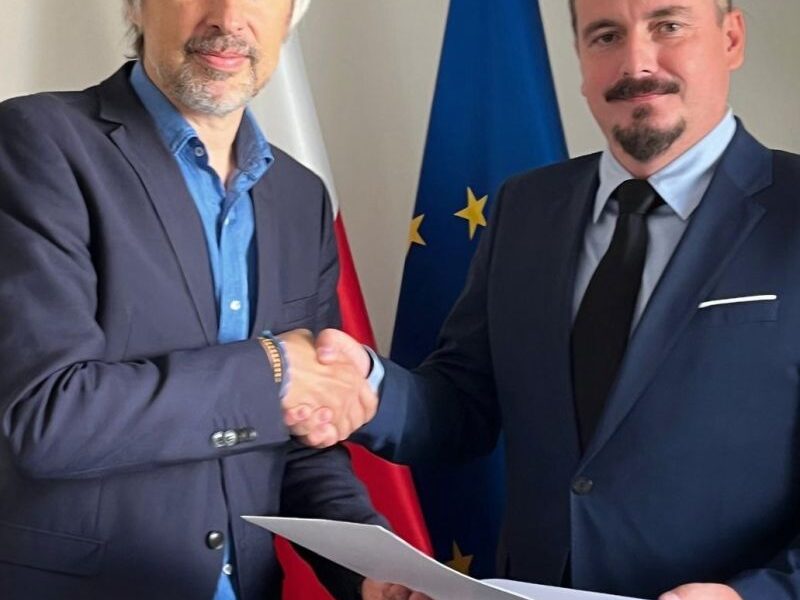
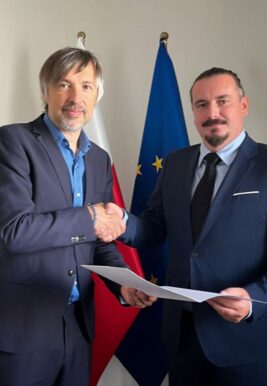 We are pleased to announce that Robert Jeszke, CAKE CEO was appointed on 6th September 2024 by Paulina Henning-Kloska, Minister of Climate and Environment as the Deputy Director for Emissions Management at the Institute of Environmental Protection- National Research Institute (IOŚ-PIB), The National Centre for Emissions Management (KOBIZE) .
We are pleased to announce that Robert Jeszke, CAKE CEO was appointed on 6th September 2024 by Paulina Henning-Kloska, Minister of Climate and Environment as the Deputy Director for Emissions Management at the Institute of Environmental Protection- National Research Institute (IOŚ-PIB), The National Centre for Emissions Management (KOBIZE) .
The CAKE team would like to extend our congratulations and wish you every success in your endeavours!
We are pleased to announce that the Centre for Climate and Energy Analysis (CAKE), KOBIZE, IOŚ-PIB is one of the beneficiaries in the SPARCCLE project – ‘Socioeconomic Pathways, Adaptation and Resilience to a Changing CLimate in Europe’ funded by Horizon EU, Swiss Confederation and UK Research & Innovation.
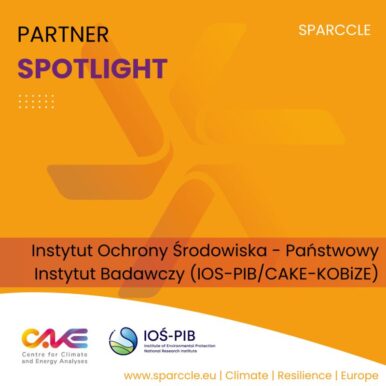
As part of the #PartnerSpotlight promotion series, the Centre for Climate and Energy Analysis (CAKE), a specialised analytical centre within the National Centre for Emissions Management (KOBiZE) at the Institute of Environmental Protection- National Research Institute (IOŚ-PIB), was presented. CAKE is a team of experts developing and implementing state-of-the-art analytical tools, networks and communication channels. At the core of CAKE is the provision of practical knowledge to enhance decision-making. With extensive experience in climate and energy analysis , CAKE experts monitor both EU and Polish climate policy.
The SPARCCLE project will develop and implement new scientific methodologies in the areas of climate impacts and integrated assessment of socio-economic risks associated with climate change. The research will take into account opportunities for synergies and the need to develop trade-offs between mitigation and adaptation at both EU and global levels. The methodology will also take into account cross-sectoral linkages and spillover effects. The project will develop a series of analytical tools (primarily numerical models) capable of investigating, quantifying and informing the transformations that will create a climate-resilient economy in the long term.
Twelve organisations are involved in the SPARCCLE project as part of a consortium to implement the project, one of which is the Institute for Environmental Protection – National Research Institute (IOŚ-PIB/CAKE-KOBiZE) and eleven other European institutions International Institute for Applied Systems Analysis (IIASA), Fondazione Centro Euro – Mediterraneo sui Cambiamenti Climatici (CMCC), Climate Analytics (CA), Potsdam-Institut für Klimafolgenforschung (PIK), Vrije Universiteit Brussel (VUB), E3-Modelling (E3M), Ministerie van Infrastructuur en Waterstaat (PBL), Università degli Studi di Firenze (UNIFI), Eidgenössische Technische Hochschule Zürich (ETH Zürich), Joint Research Centre – European Commission (JRC), Imperial College of Science, Technology and Medicine (Imperial).
On July 3rd, 2024 Robert Jeszke, CEO of CAKE, participated in a closed-door workshop organised by PIK – Potsdam Institute for Climate Impact Research and Carbon Gap. The event brought together leading experts, civil society, industry representatives, and EU policymakers to discuss the role of carbon removal in delivering on the European Green Deal.
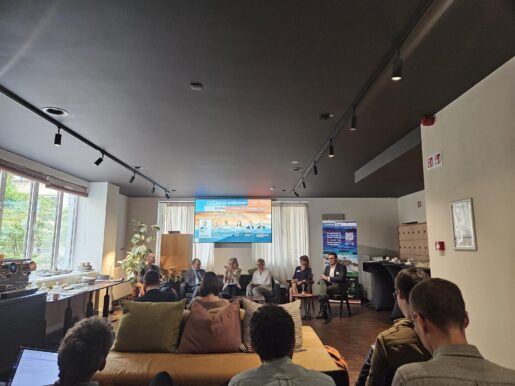 The workshop provided an opportunity to present different perspectives on how to best integrate CDR into EU mitigation efforts and highlighted the need for a coherent EU policy framework to support the deployment and scale-up of carbon removal in the years to come. There is no doubt that these discussions will continue, with key issues and next steps to be outlined in the forthcoming months and years. It is of the utmost importance to emphasise that carbon removal through technologies such as CCS/CCU, DACCS, and BECCS are indispensable. Achieving the EU’s climate policy targets requires a greater focus on carbon removal. For sectors where total emission reductions are technologically or economically infeasible, integrating removal technologies systematically into climate policy can provide additional carbon allowances.
The workshop provided an opportunity to present different perspectives on how to best integrate CDR into EU mitigation efforts and highlighted the need for a coherent EU policy framework to support the deployment and scale-up of carbon removal in the years to come. There is no doubt that these discussions will continue, with key issues and next steps to be outlined in the forthcoming months and years. It is of the utmost importance to emphasise that carbon removal through technologies such as CCS/CCU, DACCS, and BECCS are indispensable. Achieving the EU’s climate policy targets requires a greater focus on carbon removal. For sectors where total emission reductions are technologically or economically infeasible, integrating removal technologies systematically into climate policy can provide additional carbon allowances.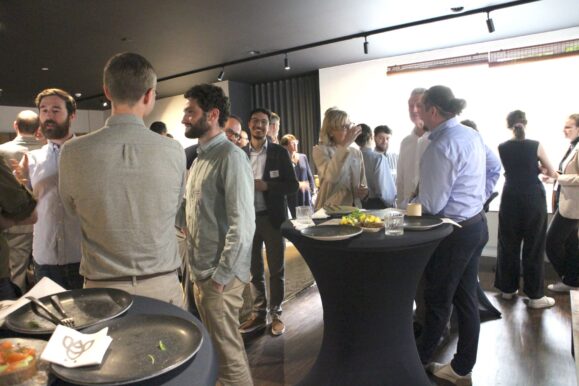
This approach frees up resources within the economy, allowing for increased production in other areas. Pricing negative emissions from BECCS and afforestation can lower the carbon price in the EU ETS, ETS2, and reduce carbon costs in non-ETS sectors. Therefore, the development of the negative emissions market and regulatory support are essential for these technologies to thrive.
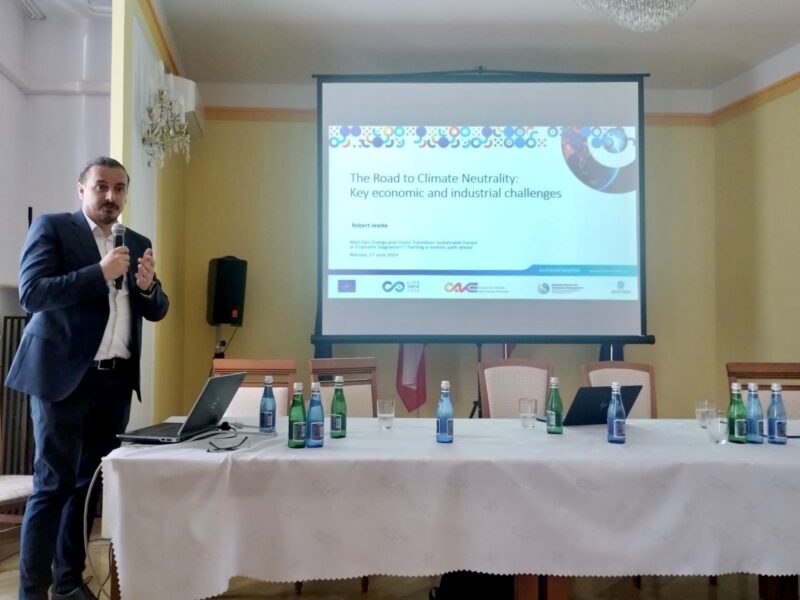
On 27th June 2024, Robert Jeszke, CAKE CEO, took part in an expert debate on EU climate policy and the energy transition entitled “Next-Gen Energy and Green Transition: Sustainable Future or Economic Stagnation? Charting a realistic path ahead” at the Czech Embassy organised by the Global Arena Research Institute and the Embassy of the Czech Republic in Warsaw.
Robert Jeszke, in addition to presenting modelling results from recent CAKE analyses, highlighted several key points:
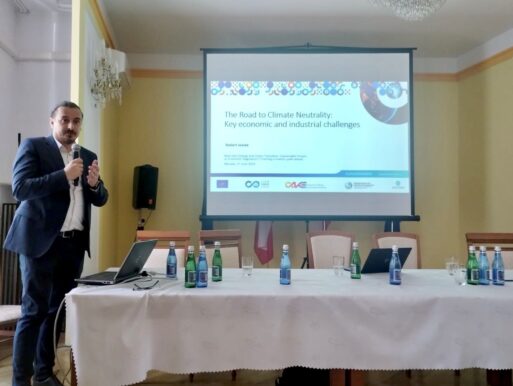 The key role of removals: it is practically impossible to achieve EU reduction targets (net-zero) without CO2 removal technologies (so-called removals) – both natural and technological (BECCS, DACCs).
The key role of removals: it is practically impossible to achieve EU reduction targets (net-zero) without CO2 removal technologies (so-called removals) – both natural and technological (BECCS, DACCs).
On June 18th, 2024 Jakub Boratyński, our CAKE modelling expert presented the latest outcomes of our work and the LIFE VIIEW 2050 project at the European University Institute Robert Schuman Centre for Advanced Studies and LIFE COASE Workshop: “The role of carbon markets in reaching carbon neutrality”.
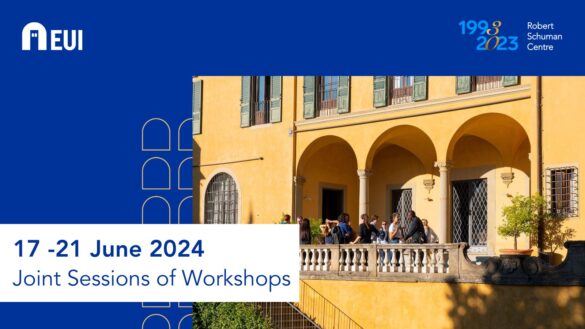
Jakub Boratyński delivered the presentation entitled: „Economic interaction between climate policy instruments. The role of carbon markets in reaching carbon neutrality”. During his speech he provided a brief overwiew of the LIFE VIIEW 2050 project goals and i the simulation modeling toolkit used (CGE model-d- place, MEESA- power sector model, EPICA- agricultural model, TR3E- transport model). He also presented the results of the latest LIFE VIIEW 2050 analysis, which focused on the synergies between the EU ETS and other EU climate policy measures – carbon removal, hydrogen, and transport.
The principal conclusions of the presented outcomes are presented below:
Agenda: LINK
More information: LINK
Presentation: VIIEW_2050_Firenze2024
